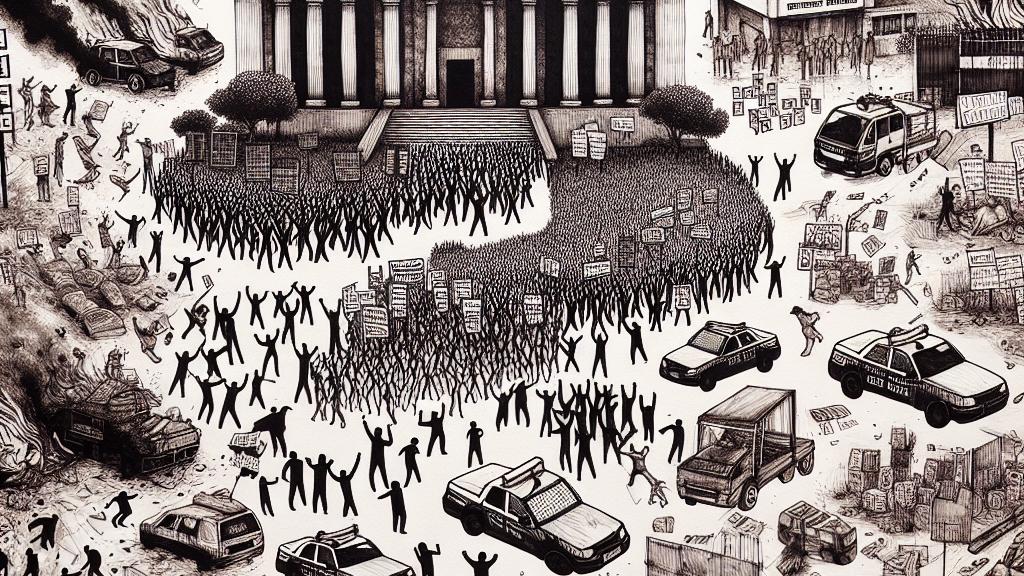Understanding Post-Election Unrest in Ghana: Aftermath and Reactions
Overview
- Ghana faces turbulence as over 100 supporters arrested post-election.
- Vandalism, looting, and protests reveal underlying tensions.
- Political leaders urge calm and responsibility amid chaos.

A Nation in Turmoil
In the wake of Ghana's recent elections, an uneasy calm was shattered by widespread unrest. President-elect John Mahama’s supporters, eager for change and frustrated over job uncertainties, have engaged in chaotic protests. The police report an alarming figure—over 100 arrests have been made in connection with acts of vandalism and violence. For example, in several regions, passionate supporters were seen looting government buildings, while electoral commission offices were set ablaze in a fit of rage. This surge of unrest is deeply rooted in Ghana's 'winner-takes-all' political landscape, a culture that often drives supporters to extreme actions when they feel their interests are ignored during transitions.
Leadership and the Power of Restraint
In this tumult, Mahama has taken a bold stance, publicly denouncing the violence and urging his followers to embrace restraint. His call is crucial, for it emphasizes the weight of leadership in steering public sentiment toward unity rather than division. Notably, Vice-President Bawumia's gracious concession reflects a commendable commitment to national integrity; acknowledging defeat even before official results were announced was a feat admired across the nation. This type of leadership—prioritizing national unity over party loyalty—can pave the way for a smoother political transition, fostering a spirit of cooperation rather than conflict. Such decisive actions resonate with citizens, who look for examples of responsible governance in these heated times.
Paving the Way for Stability and Dialogue
To prevent further violence, the Ghanaian police have escalated security efforts, pledging to act against anyone who threatens public order. As Mahama prepares for his inauguration in January 2025, the urgency of restoring peace cannot be overstated. This transitional period challenges leaders to foster dialogue and understanding among differing political factions. If constructive conversations can occur and accountability is prioritized, Ghana may emerge from this turmoil stronger and more united. The hope lies in fostering a culture where political differences do not lead to violence, but instead encourage collaboration and respect. Ultimately, the strength of a democracy is determined by its ability to manage tensions with grace and maintain the trust of its citizens.

Loading...